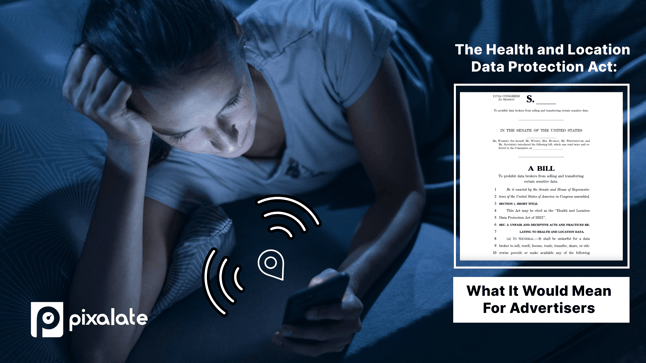
This week's review of ad fraud and privacy in the digital advertising space.
At the recent 2022 International Association of Privacy Professionals (IAPP) conference in Washington D.C., Pixalate’s Senior Vice President of Public Policy, Ads Privacy and COPPA Compliance and former FTC enforcer, Allison Lefrak, presented Pixalate’s industry-first AI-based toolkit to identify apps that are likely child-directed and assess COPPA violation risk potential. Pixalate announced the release of its free COPPA Audience Assessment toolkit earlier this month.
Watch Lefrak’s full presentation here.

Pixalate released the Q1 2022 Privacy on Virtual Private Network (“VPN”) Apps Report, a comprehensive analysis of the state of privacy within VPN mobile apps through Q1 2022.
The key findings of the report include:

Starting with the leak in May of the U.S. Supreme Court’s draft decision to overturn Roe v. Wade, legalizing a woman’s right to an abortion, some legislators are taking action to try and prevent tech companies from selling users’ health data. The concern is that this data could be used in some states with strict anti-abortion laws to attempt to prosecute women seeking abortion care.
In its recent Q1 2022 Privacy on Family Planning Apps Report, Pixalate found that among 1.7k apps classified as “family planning” - meaning apps with the words “pregnancy” or “period” in the title - across the Google Play and Apple App stores:

TIME published an article outlining U.S. lawmakers’ efforts to protect individuals’ digital privacy after the Supreme Court’s decision to overturn Roe v. Wade. Concerns have arisen that “digital surveillance, as Google searches, location information, period-tracking apps and other personal digital data” could now be used to prosecute women seeking an abortion.
Several bills have been introduced to help alleviate possible privacy violations. The My Body, My Data Act which would instruct the FTC to establish a national privacy standard for reproductive health information collected by apps, mobile phones and search engines, put limits on what data companies could store and allow users to access and delete their personal data. The Stop Anti-Abortion Discrimination Act would crack down on misleading advertising from anti-abortion groups. The Health and Location Data Privacy Act, outlined in depth here, would stop data brokers from selling or transferring an individual's medical and sensitive personal information.

Newsweek points to the lack of a federal privacy data protection law “to provide certainty and consistency for all companies that host and leverage private data, not just for their benefit but to protect consumers.” The article points out California and several other states have implemented privacy laws, but that a patchwork of regulations is burdensome to smaller tech companies, while giants like Apple, Google and Amazon have large legal teams to help them remain compliant, while they leverage their huge caches of consumer data.
*By entering your email address and clicking Subscribe, you are agreeing to our Terms of Use and Privacy Policy.
These Stories on Weekly Recaps
*By entering your email address and clicking Subscribe, you are agreeing to our Terms of Use and Privacy Policy.

Disclaimer: The content of this page reflects Pixalate’s opinions with respect to the factors that Pixalate believes can be useful to the digital media industry. Any proprietary data shared is grounded in Pixalate’s proprietary technology and analytics, which Pixalate is continuously evaluating and updating. Any references to outside sources should not be construed as endorsements. Pixalate’s opinions are just that - opinion, not facts or guarantees.
Per the MRC, “'Fraud' is not intended to represent fraud as defined in various laws, statutes and ordinances or as conventionally used in U.S. Court or other legal proceedings, but rather a custom definition strictly for advertising measurement purposes. Also per the MRC, “‘Invalid Traffic’ is defined generally as traffic that does not meet certain ad serving quality or completeness criteria, or otherwise does not represent legitimate ad traffic that should be included in measurement counts. Among the reasons why ad traffic may be deemed invalid is it is a result of non-human traffic (spiders, bots, etc.), or activity designed to produce fraudulent traffic.”

